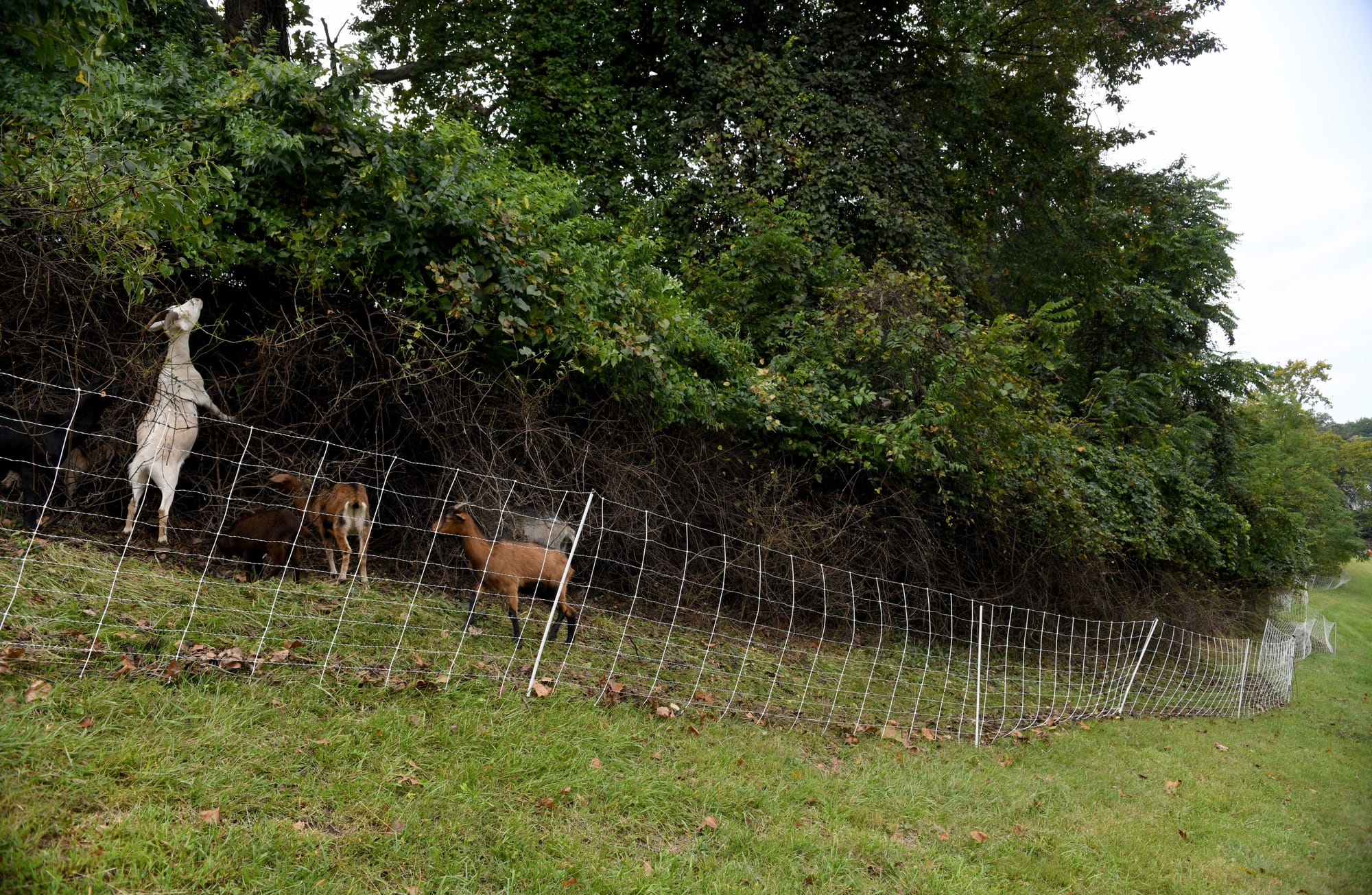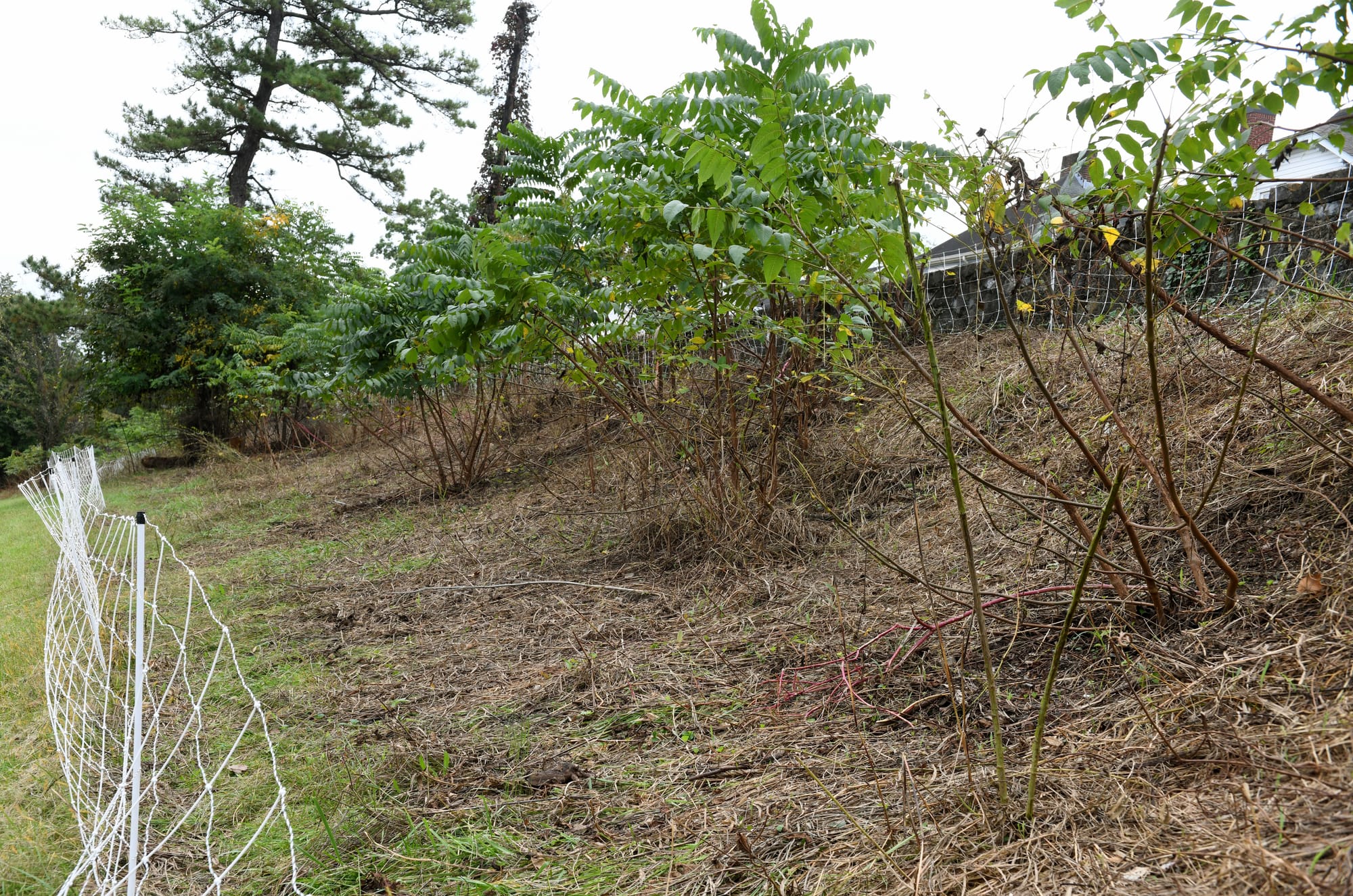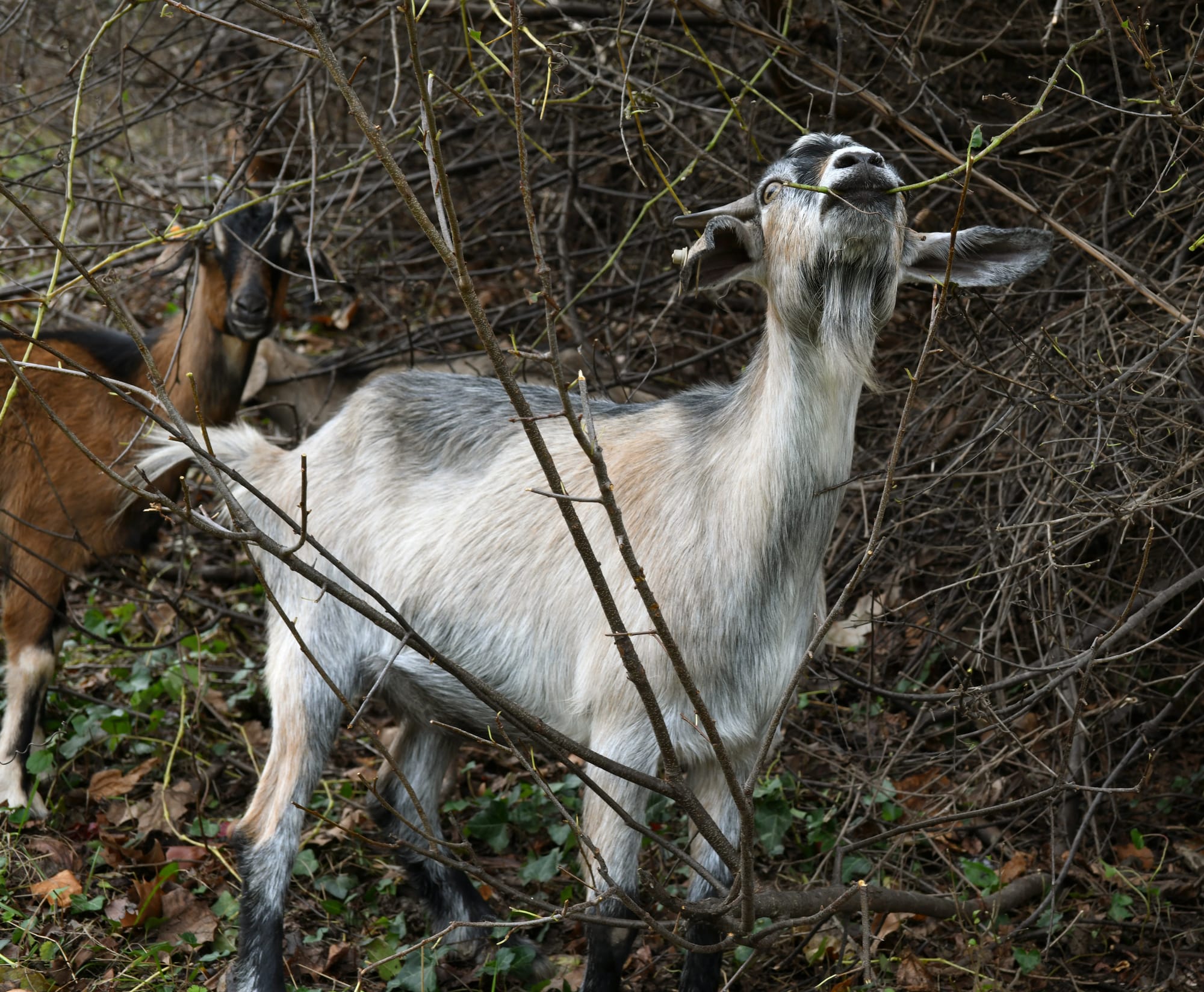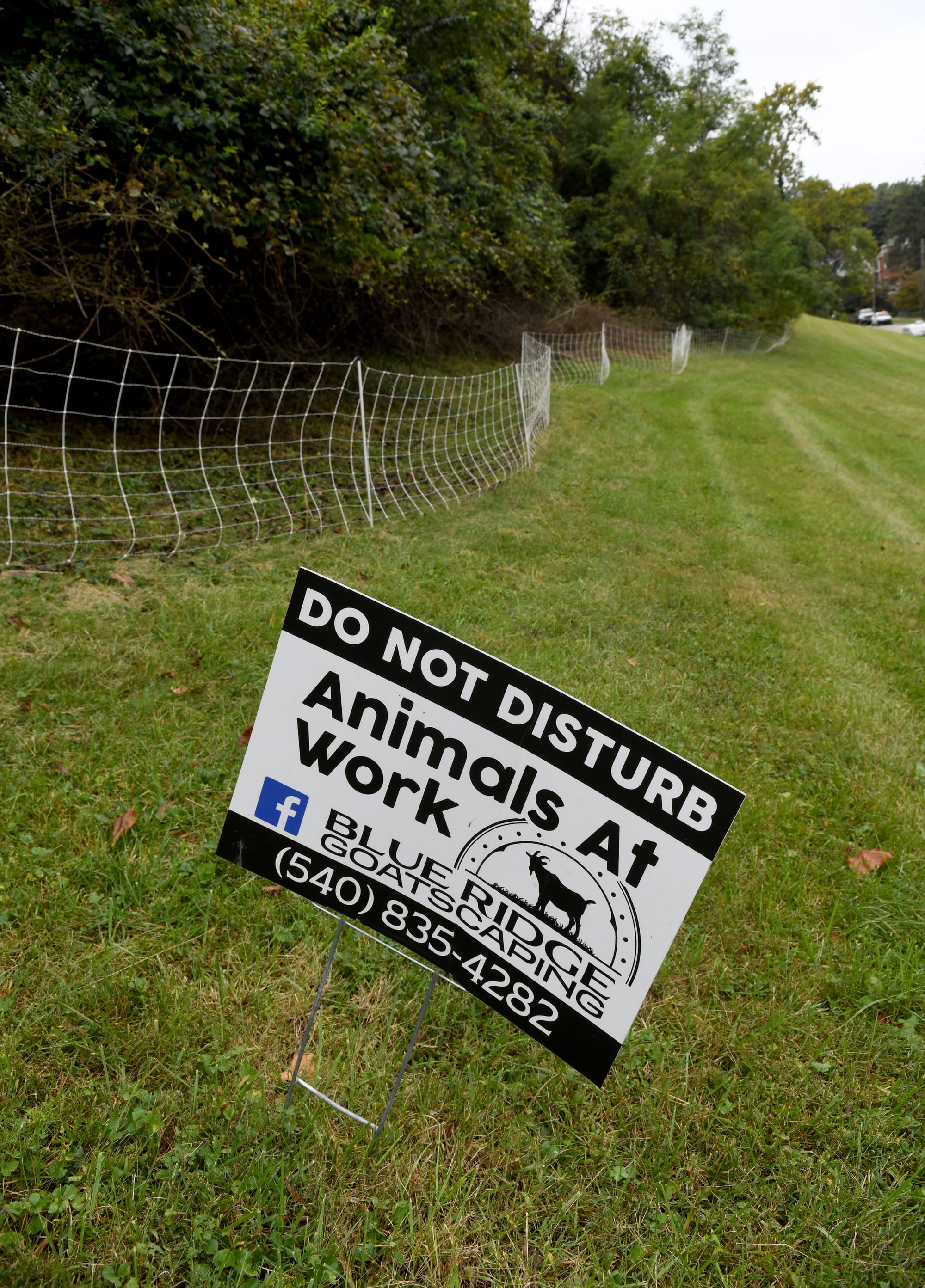Municipal Munching Now Part of Roanoke's Landscaping Toolbox
The first city project of its kind is using goats and sheep to clear a section of Valley Park.

The Wasena neighborhood went about its daily activities Monday.
A woman walked her dog. A man sanded old paint off his front steps. A teen loaded her backpack in the car and drove off to school.
And on a two-acre slope above it all — in Valley Avenue Park off 11th Street Southwest — a herd of goats chomped away toward their mission of clearing an eyesore of an overgrown mess.
It is the city of Roanoke’s first project using goats, and some sheep, to do the work that would present a much more daunting task for parks staff, said Laura Reilly, the city’s parks manager.
“If I said to you, take three other guys and I need all that cleared out – I mean, that’s just soul-crushing,” she said.
And that’s not debatable. The overgrown area on the high side of the park is so thick that deciding where to start would be an issue.

The goats and sheep, however, have already stripped a significant section to the ground in about two weeks, Reilly said. The pack of a couple dozen animals could be finished in about the same amount of time, she said.
“It really has been unbelievable, the thoroughness and the speed with which they have worked,” Reilly said.
The city contracted with the Montgomery County-based Blue Ridge Goatscaping, owned by Ezekiel Reed. The business prices by the job and not the time, and the Valley Park contract is for $2,200, Reilly said. Reed said he was initially contacted by the city's horticulturalist, Micheal Huesman.
Reilly said the project is providing a considerable cost savings but could not give a specific number. Also, the animals can do such a job without the risk of injuries that would be significant for parks staff as well as upkeep on equipment, she added. At the very least, the animals will give the department a foothold so staff can finish the job.
The use of goats had been discussed by the parks department before, but potential project areas were deemed too risky because of their locations close to significant traffic and other issues, Reilly said. Meanwhile, the city is still catching up on parks maintenance projects that were left without any attention for years after the budget was cut after the 2008 recession, she said.
That opens options, Reilly said. When the Wasena neighborhood reached out to the city in recent months about its concerns about the overgrown park area there, it became a perfect candidate for the pilot project. The neighborhood’s concerns included the potential damage weeds and other overgrowth could do to a historic stone wall — more than 100 years old — that runs along the top side of the park.

Localities across the country have been using goats for a number of years to clear publicly-owned property. The issues associated can include zoning regulations, animal welfare, public perception and environmental benefits.
Reilly said the city went about the Wasena area project proactively.
The city worked with the neighborhood to discuss the project and to get buy-in. So far, everything is going as planned, she said. A person’s complaint about the possibility that the goats could harm deer is the only negative reaction Reilly said she’s heard.
Marina Sotelos lives across the street from the park. She said she learned of the project when the city distributed flyers about the project to houses in the neighborhood.
“I think they’re great,” she said of the animals, adding that she has a five-year-old son who loves to talk about “the goats.”
Jim Hosch, who has been involved with the Wasena neighborhood association for years and is its immediate past president, said he was involved with distributing door hangers about the project. He said there was also a goal to keep the news about the project within the general neighborhood so it didn’t become an initial spectacle with cars coming in from everywhere like it’s “a zoo.”
That was pulled off so well that Hosch said Tuesday he was not even aware the goats had been on the job for the past two weeks.
He said the city has managed the project “expertly.”
Meanwhile, Reilly said the city’s relationship with Blue Ridge Goatscaping is going exactly as discussed as well. The business is insured and takes great care of its herd, she said.

Reed, the business owner, is on site frequently and one of his jobs is to set up a low-wattage electric fence, powered by a solar battery, that keeps the animals within a certain area. Reed moves the fence with the herd as it progresses.
Reed said his business is growing. It started with a handful of goats in 2020 and now includes about 40 goats and sheep.
“The more goats, the merrier,” he said, laughing.
Reed said the prime season for such work is from April to October.
On Monday, one of Reed’s goats, Bingles, was the obvious leader of the pack. He shoved up a tree branch so the other members of the team could eat underneath it. Then Bingles did a little hamming for a photographer’s camera.
Reilly said the experience is giving the department a feeling of pride and will likely lead to more such uses.
“I appreciate projects like this,” she said, “where we can think outside of the box and give it a try.”

